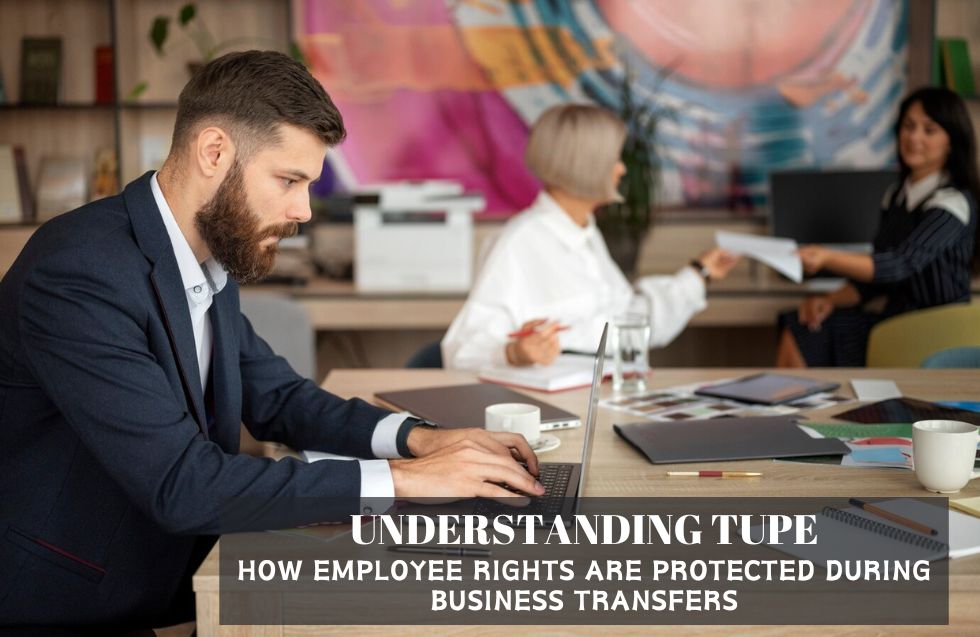Business transfers and mergers are commonplace in today’s dynamic market, with companies frequently restructuring, merging, or selling off parts of their business. While such transitions are often focused on the operational and financial impacts, the well-being of employees is also a significant concern. This is where TUPE (Transfer of Undertakings [Protection of Employment] Regulations) comes into play.
TUPE is a vital piece of employment legislation in the UK, ensuring that employees’ rights are protected during a business transfer or when a service provision changes hands. In this article, we’ll delve into what TUPE is, when it applies, and how it safeguards employee rights during business transfers.
What is TUPE?
TUPE stands for Transfer of Undertakings (Protection of Employment). It’s a UK law that was first introduced in 1981 and has since been updated to align with evolving employment practices. The key purpose of TUPE is to protect employees if the business they work for changes ownership. This law ensures that their employment terms, conditions, and continuity of service are maintained even after the transfer of the business or service provision to a new employer.
Under TUPE, when a business or part of a business is sold, the employees working in that part automatically transfer to the new employer. Their existing employment contracts, including terms like salary, holiday entitlement, and pension rights, are preserved. TUPE also applies in situations where services, such as cleaning or security, are outsourced to a new contractor or brought back in-house.
When Does TUPE Apply? When Does TUPE Not Apply?
These questions are key when understanding how TUPE regulations affect employees during business transfers.
● TUPE applies in business transfers and service provision changes, ensuring employee rights are protected in both cases.
● TUPE does not apply to transfers of shares, asset-only transfers, or short-term projects, where no fundamental employee transfer is involved.
There are two main scenarios where TUPE is likely to apply:
Business Transfers: A business transfer occurs when all or part of a business is sold to a new owner. This could involve the sale of the entire company, or the transfer of a division or department within a larger organization. In these situations, TUPE ensures that the employees in the transferred part of the business move to the new employer with their existing employment terms intact.
For example, if a retail chain sells one of its branches to another company, the employees working at that branch will automatically transfer to the new employer. Their contracts of employment remain valid, and their rights are protected.
Service Provision Changes: TUPE also applies when there is a change in service provision, such as outsourcing, insourcing, or changing contractors. This might involve a company outsourcing its cleaning services to a third-party contractor, or deciding to bring those services back in-house after a period of outsourcing.
In these cases, the employees who are directly involved in providing the service in question will transfer to the new employer under TUPE. Their contracts and employment rights are maintained as if they had always worked for the new employer.
Key Employee Rights Under TUPE
One of the central aims of TUPE is to ensure that employees are not unfairly dismissed or have their terms of employment negatively altered due to a business transfer. Here are some key employee rights protected under TUPE:
Continuity of Employment: Employees who transfer under TUPE have their continuous employment protected. This means that the length of time they have worked for their previous employer carries over to the new employer. For example, if an employee has been with their old employer for 10 years, they will be considered to have 10 years of service with the new employer, ensuring that benefits tied to length of service, such as redundancy payments and pension rights, remain intact.
Preservation of Terms and Conditions: TUPE protects the terms and conditions of employees’ contracts. This includes salary, working hours, holiday entitlement, pension contributions, and other contractual benefits. The new employer is required to honor the existing terms of the employees’ contracts unless changes are agreed upon through collective consultation or negotiation.
Protection from Unfair Dismissal: Employees are protected from being dismissed solely because of a business transfer. If a dismissal occurs, it will be automatically considered unfair unless the employer can demonstrate that the dismissal was for an economic, technical, or organizational (ETO) reason. For example, if the new employer plans to restructure the business and reduce the workforce for valid economic reasons, this could be considered an ETO reason.
Consultation Rights: Both the old and new employers have a duty to inform and consult employees who are affected by the transfer. This consultation must take place with either the employees’ representatives or, in the absence of such representation, directly with the employees themselves. Employees must be informed about the transfer, the date it will take place, the legal, economic, and social implications of the transfer, and any measures the new employer intends to take in relation to the employees.
Responsibilities of the New Employer
While TUPE offers significant protections for employees, it also imposes responsibilities on the new employer who takes over a business or service. The new employer must:
Honor Existing Contracts: The new employer must recognize and uphold the terms and conditions of the employees’ contracts as they were with the previous employer. Any changes to the terms of employment must be agreed upon through consultation.
Provide Equivalent Pension Schemes: While TUPE does not mandate that the new employer replicate the exact pension scheme provided by the previous employer, it does require that they offer an equivalent scheme. If the previous employer had an occupational pension scheme in place, the new employer must provide access to a similar scheme.
Respect Collective Agreements: If there were collective agreements in place between the employees and the previous employer (for example, with trade unions), the new employer is bound by these agreements until they expire or are renegotiated.
Can an Employer Make Changes After a TUPE Transfer?
While TUPE is designed to protect employees from unfair treatment during a transfer, it does not prevent the new employer from making changes in the future. However, these changes cannot be made solely because of the transfer. The new employer must demonstrate that the changes are necessary due to economic, technical, or organizational (ETO) reasons.
For example, if the new employer needs to restructure the business for efficiency or cost-cutting purposes, they may consult with employees about potential changes to their terms and conditions. Any changes must be agreed upon through proper consultation and negotiation.
Employee Rights After a TUPE Transfer
Once the business transfer is complete, employees continue working for the new employer with their rights intact. If an employee believes that their rights have been violated (e.g., if their terms of employment are changed without consultation or if they are unfairly dismissed), they can take legal action through an employment tribunal.
Conclusion
TUPE is a critical piece of legislation that ensures employees are not unfairly disadvantaged when the business they work for changes hands. It protects their employment terms, continuity of service, and rights during a potentially disruptive time. Understanding TUPE is essential for both employers and employees to ensure that business transfers are handled smoothly and fairly, safeguarding the rights of those involved.
As businesses evolve and change, TUPE serves as a cornerstone of employee protection, providing stability and fairness during what can be a turbulent transition. For employers, compliance with TUPE is not just a legal requirement but also a best practice to ensure a seamless transfer of both business operations and human resources.













